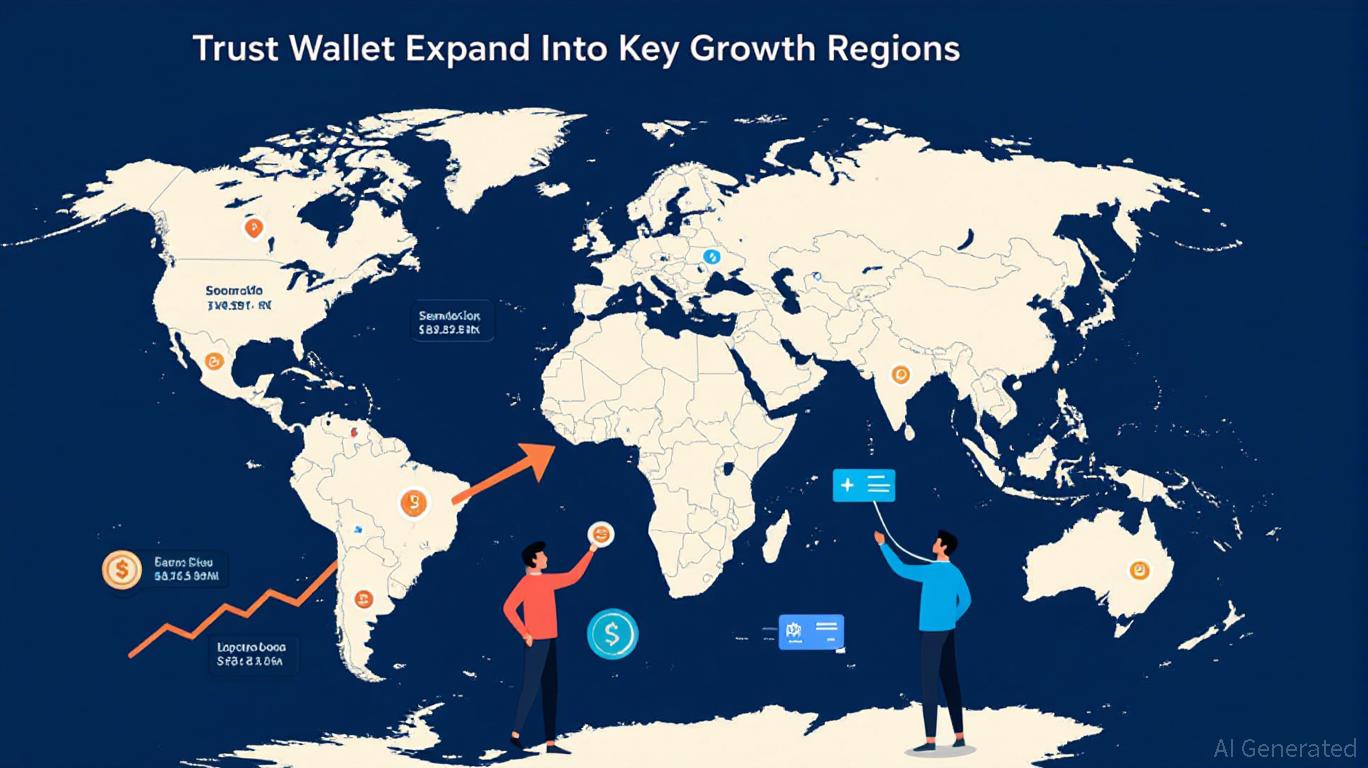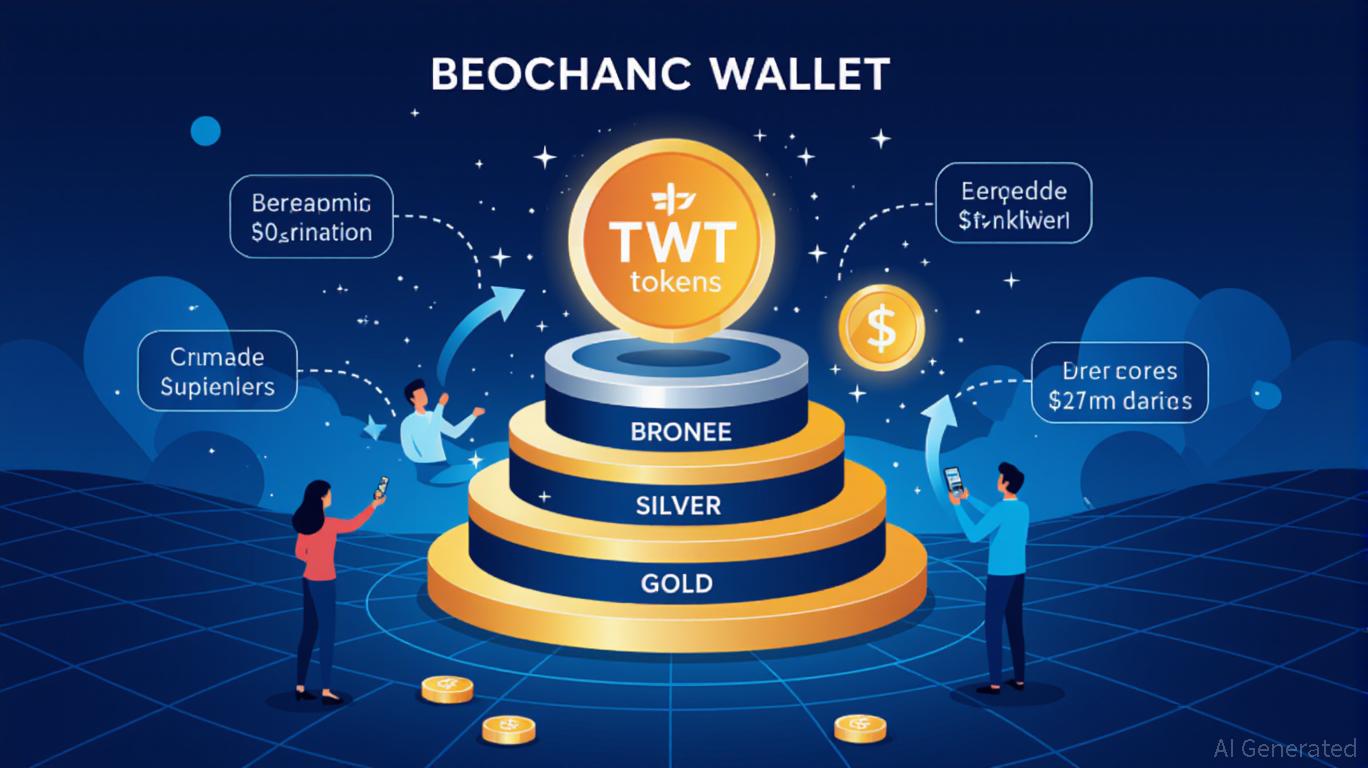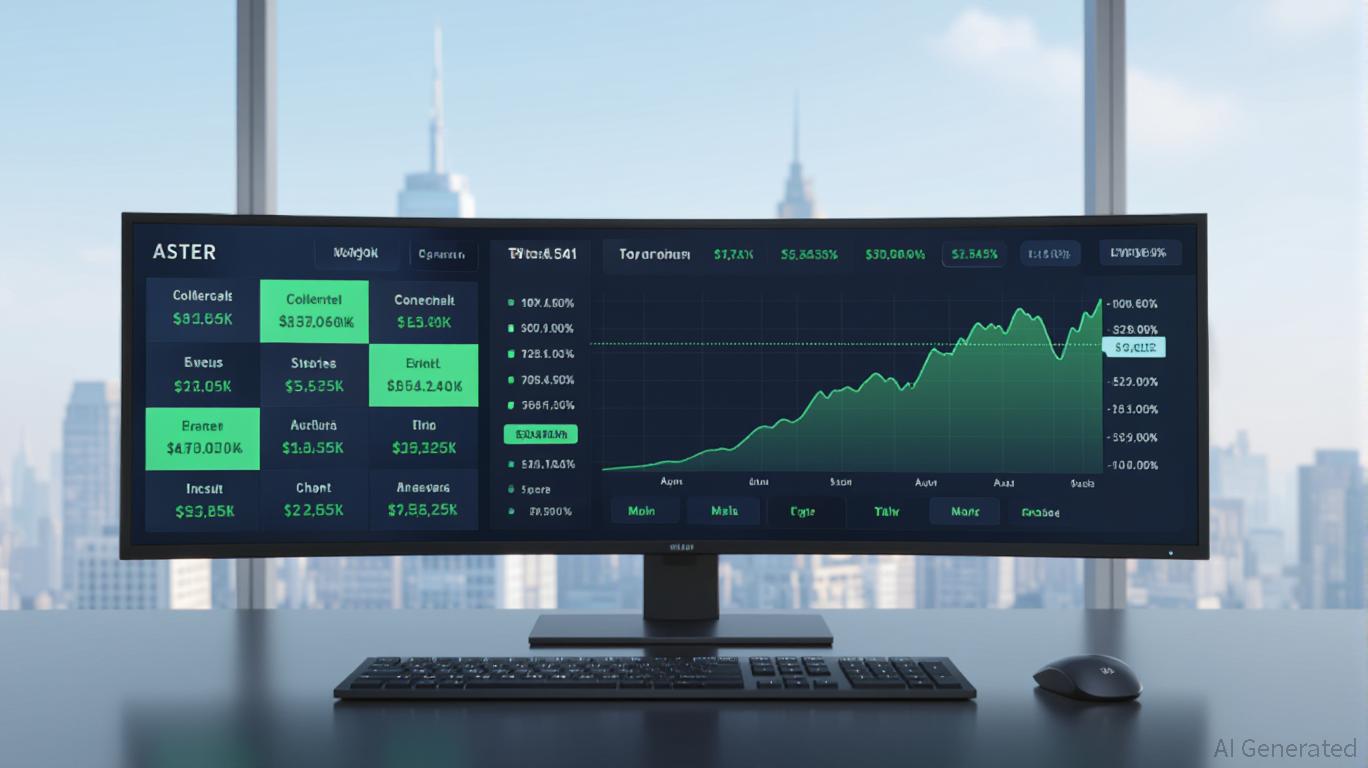Bitcoin News Update: The Illusion of Crypto Anonymity Exposed as $780 Million Confiscated in Worldwide Operation
- U.S. Treasury sanctions Cambodia's Prince Group, freezing $780M in BTC linked to fraud and money laundering. - Global crackdown intensifies as Singapore seizes S$150M and South Korea tracks $8.6M in illicit crypto flows. - Blockchain analytics enable regulators to trace illicit flows, challenging crypto's anonymity myth. - Multilateral enforcement signals stricter AML/KYC demands for exchanges amid cross-border regulatory coordination.
The U.S. Treasury has struck a significant blow against Cambodia's Prince Group by imposing sanctions on 25 crypto wallets associated with the conglomerate and freezing $780 million in
Prince Group, a major Cambodian corporation accused of running extensive fraud and money laundering schemes, has repeatedly come under international scrutiny. In 2022, U.S. authorities confiscated 127,271

This move by the Treasury showcases the openness of blockchain systems, where, despite Bitcoin's pseudonymous features, authorities can monitor transactions on a permanent ledger. "Digital assets cannot be used to hide illegal conduct," a Treasury official stated, noting that sophisticated analytics are now essential for tracking unlawful financial activity. The sanctions are part of a global pattern: Singaporean authorities recently confiscated over S$150 million (about $115 million) in assets tied to Prince Group, including high-end real estate and a yacht, as part of a probe into forgery and money laundering.
South Korea has also voiced concerns about international crypto threats. Recent data showed a
The consequences for the cryptocurrency sector are significant. By targeting Prince Group and its network, authorities are making it clear that digital currencies will face the same regulatory oversight as conventional finance. "This strengthens the perception that governments are becoming more effective at enforcing crypto regulations," a blockchain expert commented. Crypto exchanges are now expected to bolster their Know Your Customer (KYC) and Anti-Money Laundering (AML) measures to prevent illegal transactions.
On a global scale, the unified actions against Prince Group illustrate increasingly strict regulatory coordination. The U.S., UK, Singapore, and South Korea have all enacted sanctions or asset freezes, indicating a move toward joint enforcement. As the Treasury's intervention shows, digital assets—once considered a safe haven for illicit actors—are now central to worldwide efforts to uphold financial integrity.
Disclaimer: The content of this article solely reflects the author's opinion and does not represent the platform in any capacity. This article is not intended to serve as a reference for making investment decisions.
You may also like
Trust Wallet Token (TWT) Price Forecast: Will the Latest Strategic Alliance Ignite a Bullish Turnaround?
- Trust Wallet's Onramper partnership expands fiat-to-crypto access via 130+ local payment methods in 190+ countries, aligning with post-DeFi utility-driven adoption. - The collaboration boosts TWT demand through 210M+ users funding wallets via UPI/VietQR/M-Pesa, enhancing token utility for governance and fee discounts. - Elliptic's $100M institutional backing highlights growing blockchain data infrastructure importance, indirectly validating Trust Wallet's compliance-focused onboarding strategy. - TWT's v

TWT Introduces a Revamped Tokenomics Framework: Transforming DeFi Rewards and Influencing User Actions
- Trust Wallet's TWT tokenomics shift to utility-driven incentives via Trust Premium, replacing speculative governance with tiered rewards for user engagement. - FlexGas and RWA partnerships expand TWT's utility as a fee currency and bridge between DeFi and traditional finance, enhancing demand and scarcity. - Tiered rewards and token locking create flywheel effects, stabilizing supply while incentivizing long-term participation over short-term liquidity. - Challenges include Binance's collateral ratio cut

Astar 2.0: Redefining Web3 Infrastructure for the Next Generation
- Institutional investors are increasingly allocating to digital assets, with Astar 2.0 emerging as a key platform due to its scalability and interoperability. - Astar 2.0’s hybrid architecture and partnerships with global enterprises like Casio and Sony enhance its institutional appeal through real-world applications. - The platform’s on-chain governance and enterprise-grade security align with institutional priorities, despite challenges in transparent communication and competition.

Aster DEX's Latest Strategic Move and Its Influence on DeFi Liquidity
- Aster DEX's 2025 governance changes redefined ASTER as a functional trading collateral and fee discount asset, boosting liquidity provider (LP) engagement. - The 80% margin ratio and 5% fee discount incentivized LPs to reallocate capital, adjust staking behaviors, and adopt novel yield strategies like "Trade & Earn." - ASTER's price surged 860% post-TGE, TVL grew from $172M to $2.18B, and Coinbase's roadmap inclusion signaled institutional validation of the platform's privacy-focused DeFi model. - Upcomi
